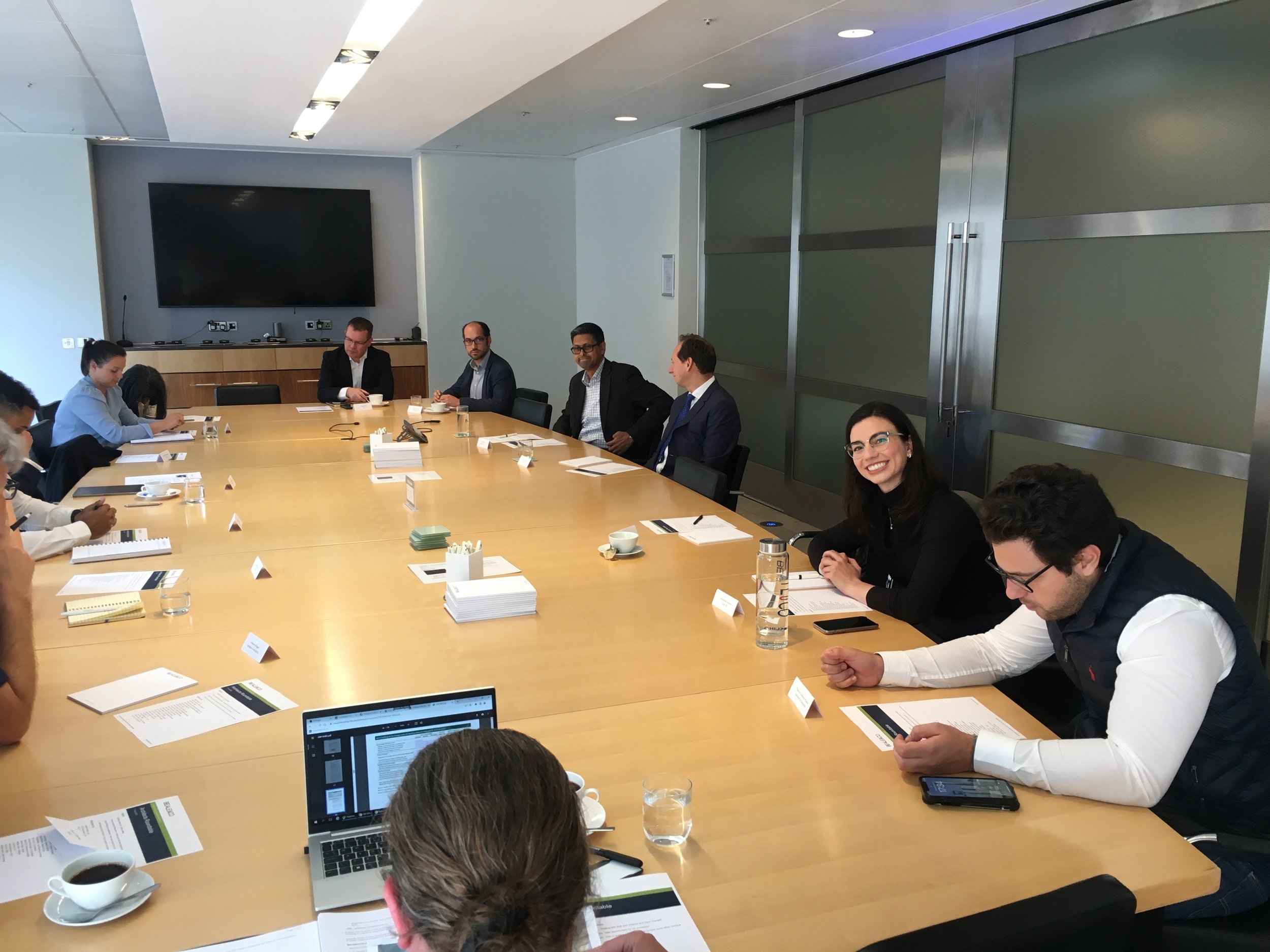AIA Attends Architects’ Roundtable
Fiona Mckay
Chapter sponsor Beale & Co held their Architect’s Roundtable on the 6th of July at their offices in the City. This annual event invites representatives from numerous prominent London architectural practices to meet and discuss topics of mutual interest. AIA UK secretary Adelina Koleva, AIA, and board member Michael Lischer, FAIA attended this year representing the AIA.
The Roundtable was very well attended with over 25 people participating from the RIBA and practices such as Gensler, Hawkins Brown, Allies & Morrison, BIG, and David Chipperfield, to name a few. The discussions were well managed by Beale representatives and this year addressed:
Building Safety Act – Latest updates.
Project Suspension/descoping – Dealing with stop start projects and client changes.
Mutual Recognition Agreements - New opportunities for UK architects?
Insolvencies and Late Payment – How to protect your position and recover sums when overdue.
The discussions were very informative, and among the points coming out of each topic are the following:
Building Safety Act
The first section of the Act, Gateway 1, came into force in 2021 and the remaining sections, Gateways 2 & 3, come into force this October.
New responsibilities and liabilities are placed on the architect as they take on the Principal Designer role.
Some firms are looking to outsource this role in a similar manner to the CDM responsibilities, although this is frowned upon.
Taking on the role of the Principal Designer may impact your PI insurance.
Practices are encountering “push back” from clients regarding the additional fees required to comply with the Act.
Project Suspension/descoping
Due to the current economic climate participants reported a few of their projects have been cancelled or are experiencing significant delay.
It is important to include suspension and prolongation clauses in your contracts!
Have regular discussions with your clients about budget and schedule.
One way to illustrate your ongoing cost when a project is delayed is to continue to invoice your client listing your time spent on their behalf while their project is in delay.
The AIA’s standard general conditions has good contractual language that could be used as a reference when drafting your contracts (be aware of copyright infringement!).
Mutual Recognition Agreements
Secretary Koleva gave a comprehensive overview of the recent USA/UK agreement.
The USA/UK agreement is based on the assumption the education in each country is the same. Unless you have a “traditional” architectural education, the agreement does not apply.
It appears to be easier and less expensive for UK architects to get licensed in the USA than USA architects to get licensed in the UK!
Even if a UK licensed architect gains recognition in the USA, there may be other barriers to setting up a practice there. Issues like restrictions on foreign ownership of a USA business should be considered.
Insolvencies and Late Payments
The number of insolvencies in the design and construction industry have nearly doubled in the first six months of 2023 compared to all of 2022. (2,500 in 2022 vs. 4,000 in 2023).
Make certain you have a “step in clause” in your contract. This obligates the new owner of a failed project to pay the delinquent design fees.
Have a clause in your contract that states you retain copyright on your intellectual property, or it reverts back to you, if your invoices are unpaid.
Keep detailed records including time expended to use as evidence when dealing with late payments.
Having attended several of the Beale & Co hosted roundtables, I find it interesting to learn most of the problems and issues facing small practices are the same ones facing the large international practices. The Beale roundtables are an ideal forum to compare issues and learn how our colleagues in the profession have dealt with them.
Thank you to Beale & Co for providing the opportunity to discuss these common concerns in our profession!
Written by Michael Lischer, FAIA

